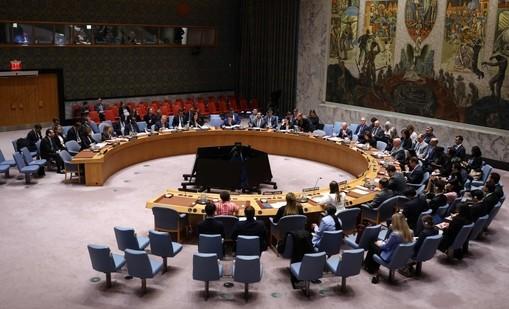
Title: Was LeT involved? UNSC asks Pak on J&K attack, refuses to accept ‘false flag’ claim
The United Nations Security Council (UNSC) has rejected Pakistan’s claims that the recent attack on Pahalgam, Jammu and Kashmir, was a “false flag” operation, instead questioning whether the terrorist outfit Lashkar-e-Taiba (LeT) was involved in the incident. The UNSC members made these comments during a closed-door meeting requested by Pakistan, according to reports.
The Pahalgam attack, which took place on October 1, resulted in the killing of three civilians, including two women, and injured several others. The terrorist outfit, Ansar Gazwat-ul-Hind (AGH), claimed responsibility for the attack, but Pakistan has been denying any involvement, instead blaming India for the incident.
Pakistan’s “false flag” narrative has been met with skepticism by the international community, with many questioning the veracity of its claims. The UNSC’s refusal to accept Pakistan’s narrative is a significant development, as it suggests that the global community is not convinced by Islamabad’s attempts to deflect responsibility for the attack.
The UNSC’s questions about LeT’s involvement in the attack are particularly significant, as the terrorist outfit is based in Pakistan and has a history of carrying out attacks in Jammu and Kashmir. LeT has been responsible for several high-profile attacks in the region, including the 2008 Mumbai attacks that killed over 160 people.
Some UNSC members reportedly brought up the targeting of tourists on the basis of religion, suggesting that the attack was motivated by sectarian hatred. This is a disturbing trend that has been observed in several terrorist attacks in Jammu and Kashmir in recent years, and highlights the need for the international community to take a strong stance against religious extremism.
The UNSC’s refusal to accept Pakistan’s “false flag” narrative is a significant setback for Islamabad, which has been trying to deflect attention from its own role in fuelling terrorism in the region. Pakistan has a long history of supporting terrorist outfits, including LeT, and has been accused of providing them with safe havens and resources.
The UNSC’s questions about LeT’s involvement in the attack are likely to put pressure on Pakistan to take concrete action against the terrorist outfit. Pakistan has been accused of providing LeT with logistical and financial support, and has been slow to take action against the group’s leaders and operatives.
The UNSC’s refusal to accept Pakistan’s “false flag” narrative is also a significant development in the context of the ongoing tensions between India and Pakistan. The two countries have been engaged in a bitter standoff over the Kashmir issue, with both sides accusing each other of human rights abuses and terrorism.
The UNSC’s comments are likely to add to the pressure on Pakistan to take steps to address the concerns of the international community. The organization has been accused of failing to take action against terrorist outfits operating from its soil, and has been criticized for its lack of transparency and accountability.
In conclusion, the UNSC’s refusal to accept Pakistan’s “false flag” narrative on the Pahalgam attack is a significant development that highlights the need for the international community to take a strong stance against terrorism. The organization’s questions about LeT’s involvement in the attack are likely to put pressure on Pakistan to take concrete action against the terrorist outfit, and underscores the need for Islamabad to take steps to address the concerns of the international community.



